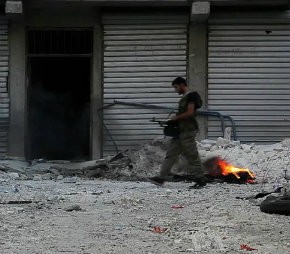Praying for Syria

In the late 1930s Germany’s Nazi government defied the terms of the World War I treaty and built the largest military machine in the world. Hitler invaded and occupied Poland and was beginning to persecute Jewish citizens. On the other side of the world the Japanese Empire was expanding its territorial boundaries in Southeast Asia.
In the United States, Century editor Charles Clayton Morrison, a “pragmatic noninterventionist,” opposed American intervention or involvement in either conflict. In editorial after editorial he argued against a military buildup. Reinhold Niebuhr, a Century editor at large, thought that Morrison was naive and that nonintervention in the face of clear oppression and palpable evil was irresponsible. Tension between the two escalated until Niebuhr resigned and, in 1941, founded Christianity and Crisis to reflect what he called Christian realism. Morrison maintained his position until the Japanese attacked American forces at Pearl Harbor.
I believe that Niebuhr was right: there are times when Christians must stand against evil and oppression; there is a time to take up arms. That said, there have not been many situations that have the moral clarity and urgency of World War II. Most proposed interventions are occasions of moral complexity and incomplete or skewed information about what is happening.





